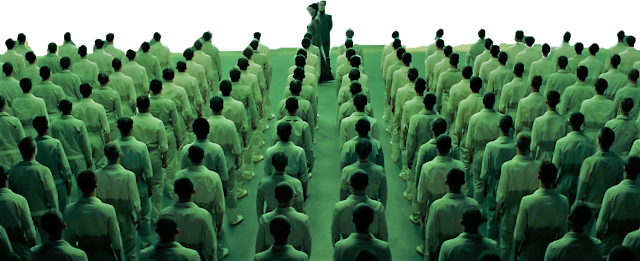Un altro tedesco che vuole cambiare il mondo
"Non è dalla benevolenza del macellaio, del birraio o del fornaio che ci aspettiamo la cena; ma dalla loro attenzione al proprio interesse" (Adam Smith "Wealth of Nations",1776).
I governi capivano che l'economia fosse così complessa che il suo controllo fosse impossibile.
Karl Marx invece credette che fosse possibile ..(anche a prezzo della libertà altrui) .
Molti studiosi di scienze economiche e sociali aderirono alla teoria, passando da una iniziale volontà di risolvere i problemi di una crisi all'ambizione di riformulare l'economia mondiale.
John Maynard Keynes a metà del secolo scorso, dopo avere predicato la massima spesa pubblica e la minima tassazione per stimolare la domanda ed uscire da recessione o depressione, ammise di essersi sbagliato nel pensare ad una prosperità perpetua. Lo fece nel 1946, dopo la 2° guerra mondiale, confessandolo a Henry Clay, professore e consigliere di Bank of England.
A causa della stagflazione degli anni '70, che tutti ritenevano improbabile, Paul Adolph Volcker, Jr. riscoprì l'ineluttabilità dei cicli economici e riuscì a sconfiggere le impostazioni keynesiane (New Economics). Con lui fu d'accordo il presidente della Fed, Arthur Burns, testimone del crollo di Bretton Wood (Richard Nixon presidente USA sospese la convertibilità del dollaro in oro), che ribadì come il ciclo economico avesse sempre vinto e le utopie degli accademici fossero sbagliate.
Il tedesco Klaus Schwab tramite il World Economic Forum ha rispolverato le idee del connazionale Karl Marx sul disegno di una diversa economia internazionale. Ha convinto i leader mondiali sull'ipotesi che questa volta si riuscirà ad acquisire maggiore e perdurante potere, a prescindere dai fallimenti passati del comunismo e del socialismo.
Nel 1959 il "dibattito in cucina" durante un'esposizione tra Richard Nixon e Nikita Khrushchev su capitalismo e comunismo aveva confermato che l'innovazione nei regimi totalitari serve al potere centrale e non a benessere e libertà delle persone. (armstrongeconomics.com /Jan 31, 2022).
Il sogno del tedesco contemporaneo attrae politici e multinazionali, a partire da Big Tech e Big Pharma, che grazie a covid-19 credono di avere imboccato la strada giusta.





Comments
Post a Comment